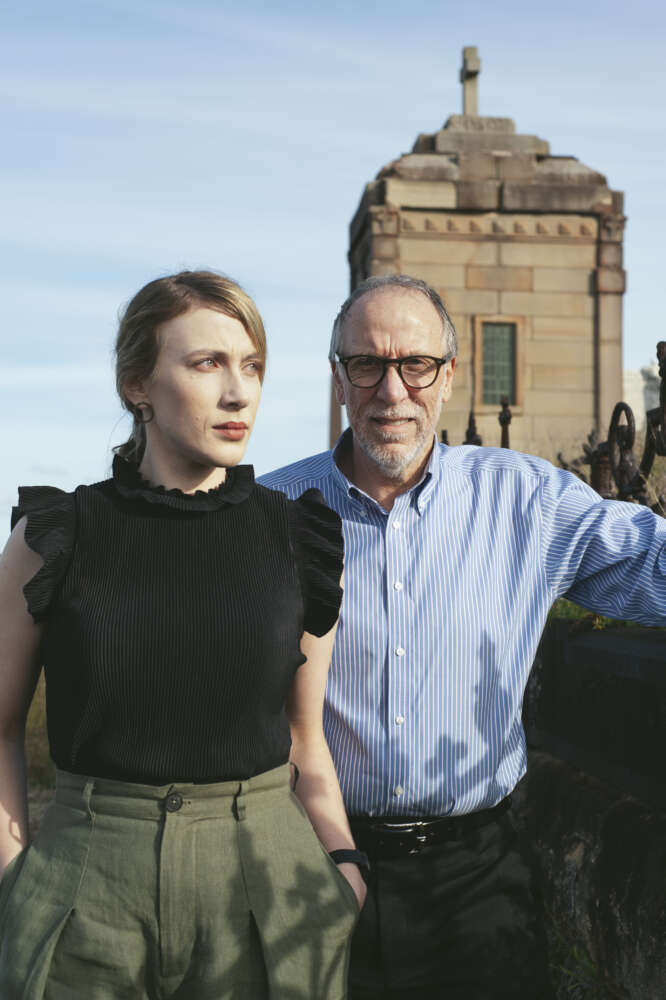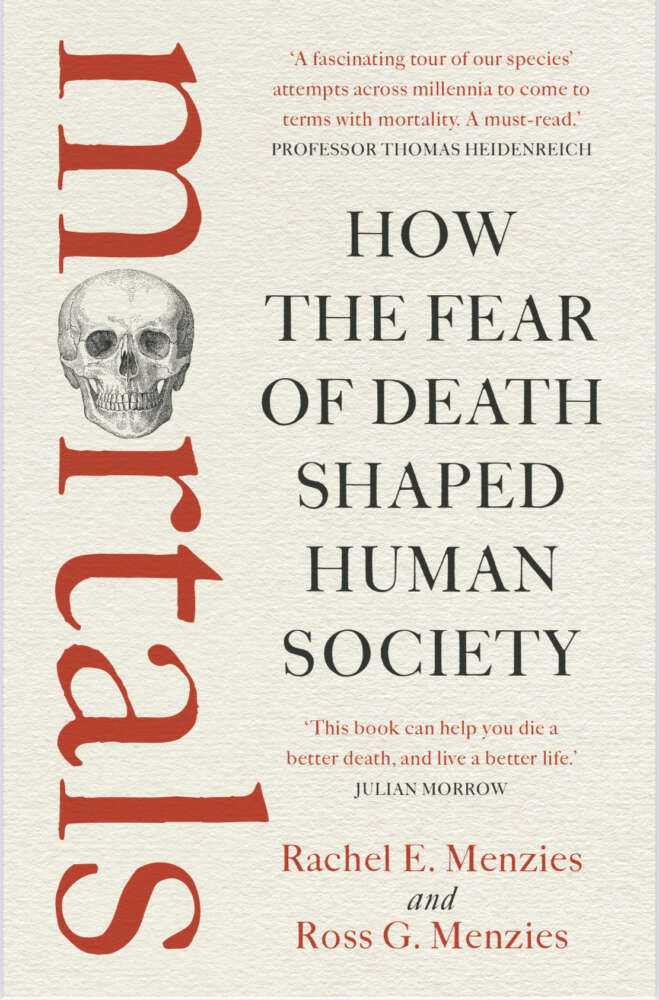This article was updated on April 27, 2023. It discusses death anxiety.
Ross and Rachel might be friends, but Professor Ross Menzies and Dr Rachel Menzies are also father and daughter—both psychologists who have authored their third book together, the fascinating Mortals: How the Fear of Death Shaped Human Society.
It examines all the human responses to death across history and examines death anxiety as the driver of most of humankind’s endeavours.
So, what is death anxiety?
And do I have it?
I explain to them my recent fear of death, an extreme fear of flying. When I booked my last flight overseas, I became sure I was going to die on the plane.
I kept thinking about it and then negated those thoughts in case they created my death.
Ross confirms it is death anxiety with a special mix of magical ideation thrown in.
“Things like tapping wood or replacing the thought with an image shows we will appeal to anything in the desire to prevent it.” Ross says, “Generally humans won’t do that for other things, and it shows the depth of our dread.”
Rachel explains that death anxiety underpins death phobia and the higher someone’s death anxiety, the worse their symptoms across numerous trans-diagnostic tests underpinning other mental health conditions.
“For example, we know the higher someone’s death anxiety the worse their symptoms on numerous different mental health conditions like depression and social anxiety, obsessive compulsive disorder.”
In the research laboratory, Rachel says, subtle reminders of death tend to change and dramatically increase people’s anxious behaviours with fear of death seeming to be the common thread across a lot of behaviours seen in clinical psychology.
How does death anxiety impact not only how we live but how we die? Dramatically, according to Ross.
“We become aware of death in stages between the ages of around four and nine. We understand that it’s irreversible, it happens to all living things and it’s going to happen to us.”
That’s when the fear starts to develop.

“In psychology there are theoretical positions that say that almost the rest of your life is dealing with that.
“One of the many ways humans do that is appealing to religious belief, because religions offer solutions, and they might offer permanence.
“Another way is extending the self so I can survive when I’m dead through DNA or my values.
“If I do what my culture told me to do and I live according to my cultural or subcultural beliefs I will be talked about and thought of positively.”
Death anxiety plays a huge role in people’s actual experience of death and progressions to end of life care.
“We know that doctors who have higher levels of death anxiety are far less likely to discuss advanced care directives with patients.
“Nurses with high levels of death anxiety have far more negative attitudes towards caring for the dying,” says Rachel.
“So, we know that the death anxiety of healthcare workers changes the outcomes for people who are at the end of life.
“Health professionals are less likely to have these kinds of discussions that are going to prepare them for a better death or the kind of death they would like.
“The same goes for family members of people who aren’t health care workers— if they don’t feel comfortable with the idea of death, they might not broach the topic with loved ones whether at the end of life or not.
“We see the medical system delivering futile treatments to patients that the doctors know are not going to do anything because death is ultimately seen as a failure in medicine.”
How can us mortals do death and grief better?
Rachel answers: “If our culture supports us with rituals and tools in our grief it supports us.
“For example, the Mexican Day of the Dead and the Japanese tradition of the ancestral shrine where you can maintain continued bonds to the dead helps to support people in their grief.”
Ross adds that Neutral Death Acceptance is what we should be aiming for.
“I accept death because it’s a natural part of the order of things.
“I don’t accept it just as an escape from a problematic life and I don’t accept it just because I think I’m going to a better place.
“I accept it from a stoic stance, there is nothing to be done and death will occur to me.
“I want to enjoy my plane trip to Tokyo and if it goes down it goes down, I can either be happy or I can be anxious but it won’t go down because of me.
“Enjoyment and living a completely authentic and a fulfilled life are going to require you to accept death and not try to deny it.”
Intrigued?

Listen here to Professor Ross Menzies and Dr Rachel on ABC’s Life Matters.
Ross and Rachel have developed Kick the Bucket an app that sends daily reminders to gain more out of your daily life by realising it ends.
Check out Mortals How the Fear of Death Shaped Human Society published by Allen & Unwin.
For more from Good Grief! on the Menzies subject, read: Is Fear of Death a Factor in Some Mental Illness?
And for some the fear of running out of money can produce anxiety too. Flick back to our article on When the fear of running out of money is greater than the fear of death.
